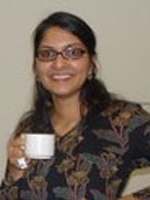Lab Group
In addition to all the employees listed here, undergraduates also have the opportunity to engage in research with the Natural Resources Social Science (NRSS) lab, learning about research methods and procedures in the process. Undergraduates typically participate in research as part of a fellowship or independent study. Recent undergraduate projects include…
- Examining the adoption, diffusion, and maintenance of rain barrels in two Indiana watersheds
- Communicating climate change in conservative communities
- Understanding perceptions and attitudes about the threatened Eastern box turtle
CHOOSE A GROUP
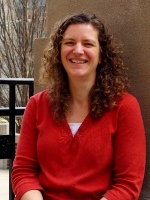
Linda Prokopy
I have been at Purdue since 2003 and consider myself very lucky to have had the opportunity to work with all the amazing people listed on this page! You can learn more about our work on the other tabs on this website and by reading my CV. If you would like copies of any of my papers, please feel free to contact me. I have three children who keep me busy outside of work. I am also actively engaged in my community. In my “spare” time, I love to read and hike in the woods.
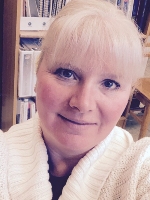
Laura Esman
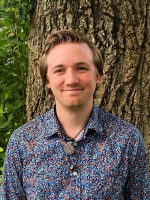
Casey Olechnowicz
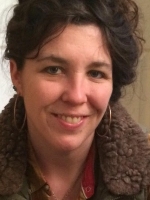
Emily Usher
Post-Doctoral Research Assistants
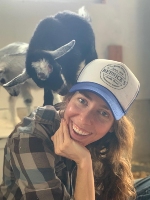
Lauren Asprooth
I am a socio-economic researcher working on participatory and community driven research that advances the transformation of agricultural systems to be ecologically regenerative, economically resilient, and socially just. I have over ten years of experience working on sustainable agriculture and natural resource governance with organizations including the Center for International Tropical Agriculture of the CGIAR and the Food and Agriculture Organization of the U.N. I have an MPA from the University of Washington's Evans School of Public Policy and Governance gained in concert with service in the U.S. Peace Corps Senegal and a Ph.D. in Geography from the University of California, Davis. My research examines the many ways in which farmers in the Corn Belt can be supported to transition to diversified, regenerative agricultural practices from grassroots peer-to-peer farmer networks to market development to Farm Bill policies.
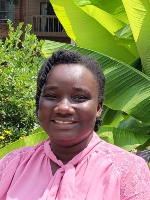
Elsie Assan
My research interest broadly encompasses understanding the role of agriculture in environmental governance and sustainability using both qualitative and quantitative research approaches. I am originally from Ghana and hold a B.Sc. in Agriculture from Kwame Nkrumah University of Science and Technology, Ghana. I obtained my M.S. in Community Sustainability from Michigan State University, where my thesis focused on the gender dimensions of climate change adaptation among smallholder farmers in Northwestern Ghana. I recently graduated from Pennsylvania State University with a Ph.D. in Agricultural and Extension Education. My dissertation assessed perspectives on stakeholder participation in the planning and implementation processes of Environmental Quality Incentives Program (EQIP) at the federal, local, and state levels of program decision-making and factors influencing farmers’ (non-)participation in EQIP. I enjoy cooking, listening to music, and spending time with my family outside of work.
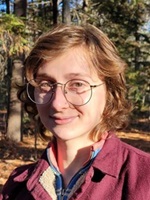
Brennan Radulski
I am an environmental social scientist with an interest in agricultural and environmental policy, economics, and governance. I grew up in Maine and received my B.A. in biology from Wake Forest University in North Carolina, my M.S. in forestry and natural resources from Purdue University, and my Ph.D. in ecology and environmental science from Montana State University. My dissertation research stemmed from a recent state-funded evaluation of California Department of Food and Agriculture climate-smart agriculture programs for farmers. I specifically examined how the overarching power dynamics between program actors, institutions, and other structures of the agriculture sector affect program access among farmers and the ability of the programs to achieve their goals. My current research focuses on the policy, economic, and governance challenges and opportunities for enhancing diversified farms and farming landscapes in the Midwest region of the US. Outside of work, I enjoy hiking, climbing, playing piano, and spending time with my family and pets.
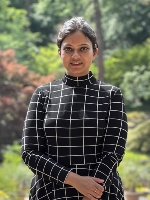
Shivika Aggrawal
I am a Lynn Fellow (PhD) and am associated with both the Interdisciplinary Ecological Sciences and Engineering (ESE) Graduate Program and Horticulture & Landscape Architecture (HLA) Department.
With an academic background in Civil Engineering and Sociology, I like to work at the intersection of Engineering, Environment, and Social Sciences with a focus on water issues meshed in agricultural landscapes. My research interests include cross-disciplinary investigation of resilience in agricultural riskscapes with a focus on social dilemmas, environmental uncertainty, design of soft infrastructure (governance regimes, literacy), knowledge-policy interaction, and integration-to-implementation sciences (i2S) approach.
Prior to my current pursuits, I have worked at the Central Building Research Institute (CSIR-CBRI) and Shobhit University in India. I also served as a Research Advisor for the interdisciplinary project Delta Lives. In my spare time, I like watching non-fiction documentaries, traveling, painting, and dancing.
I am poised to make an indelible impact, through my academic and non-academic pursuits, in the natural-social world I live in!
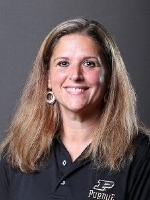
Amanda Dickson
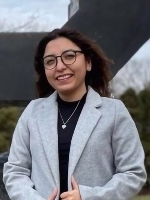
Katherine Pivaral
Katherine is a researcher and practitioner in sustainable agriculture, food systems, and community-based development. She earned her Master's degree in Horticulture and Landscape Architecture, working under Dr. Prokopy. Her research focused on case studies of markets for diversified agriculture as part of the Diverse Corn Belt Project, exploring pathways to support resilient and sustainable farming systems. Katherine has international experience, including work in Italy on the solidarity economy, in Central America implementing climate-smart strategies, and in South America, specifically Peru, where she has been involved in sustainable and regenerative development initiatives. She is passionate about integrating participatory approaches, stakeholder engagement, and policy advocacy to drive environmental and social impact. Outside work, she enjoys reading, hiking with her dog, and spending time with friends and family, as well as exploring new cultures through travel and food.
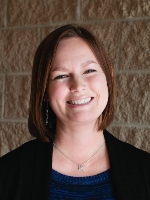
Kara Salazar
Kara is Assistant Program Leader for Community Development with Purdue Extension and Sustainable Communities Extension Specialist, affiliated with Illinois-Indiana Sea Grant and the Purdue University Department of Forestry and Natural Resources. Working with multidisciplinary teams, Kara oversees the development, delivery, and evaluation of programs to support environmental planning, community development, and sustainable development strategies in communities across Indiana and Great Lakes states. Kara has a Ph.D. in natural resources social science from Purdue University and M.S.Ed., M.P.A., and B.S. degrees from Indiana University. She is a member of the American Institute of Certified Planners (AICP), a Climate Change Professional (CC-P), and a Professional Community and Economic Developer (PCED) with credentials from LEED AP Neighborhood Development, the National Green Infrastructure Certification Program (NGICP), and the National Charrette Institute.
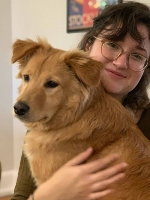
Rebecca Traldi
Rebecca is an environmental social scientist with a passion for understanding and addressing complex sustainability issues. She has a B.A. in Diplomacy and World Affairs from Occidental College, and an M.Sc. in International Development from Lund University, Sweden, where her thesis explored upland farm livelihoods in Vietnam. She has eight years of experience in environmental conservation with World Wildlife Fund-US, where she worked on agricultural supply chain sustainability and plastic pollution. In 2022, Rebecca completed her Ph.D. in Geographical Sciences at the University of Maryland-College Park. Her dissertation focused on evaluating the impacts of voluntary sustainability programs for agriculture and forestry, including village-level sustainable development projects in Laos, and global agricultural voluntary sustainability standards. In 2023, Rebecca started an AAAS Science & Technology Policy Fellowship with the U.S. Department of Energy’s Office of Clean Energy Demonstrations. Outside of work, Rebecca loves spending time in nature with my dogs, family, and friends, drinking bubble tea and cooking, and watching garbage TV.
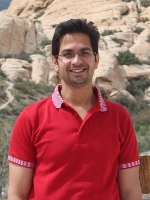
Pranay Ranjan
Pranay is an Assistant Professor of Environmental Policy in the School of Earth & Sustainability at Northern Arizona University. Pranay holds a Masters in Environmental Studies from TERI (The Energy & Resources Institute) University (now known as TERI School of Advanced Studies), and a Ph.D. in Environment & Natural Resources from the Ohio State University. During his time at Purdue, he worked on several projects including understanding farmers’ and landowners’ adoption of sustainable farming practices, and drivers of organizational readiness to adopt innovations. Broadly, his research falls under the following four focal areas: institutions and governance in natural resource management, conservation behavior and community resilience, uptake of agricultural decision-support tools by stakeholders, and climate change adaptation. As an interdisciplinary environmental social scientist his research helps build theory, while contributing to policy and practice. Outside of work, he enjoys hiking, traveling, playing squash, and playing guitar.
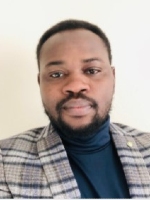
Ayorinde Ogunyiola
Ayorinde is an Assistant Professor at Murray State University. He combines computational methods and interdisciplinary theories to understand climate change issues and socio-ethical implications of emerging technologies such as artificial intelligence, big data, and algorithms in agricultural production systems and other sectors. Ayorinde has a Bachelor’s in Economics from Ahmadu Bello University (Nigeria), a Masters in Economics from the University of Ibadan (Nigeria), a Masters in Mathmatics (Finance) from Jomo Kenyatta University of Agriculture and Technology and Pan African University (Kenya), and a PhD in Sociology (with a focus in environmental sociology) from South Dakota State University.
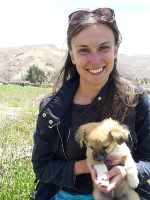
Ruxandra Popovici
Ruxandra is a Policy Analyst at Fisheries and Oceans Canada. She completed a PhD in Environmental Policy at Duke University, where she studied the impact of government-led environmental policies on local communities. At Purdue, she worked on issues related to integrated water resources management in Arequipa, Peru, cover crop adoption in the Midwest, and solar panel acceptance in Indiana. Outside of work, she likes to sail, ski, play badminton, and make jewelry.
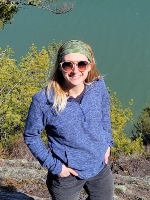
Brennan Radulski
Brennan earned her B.A. in biology at Wake Forest University in 2017 and her M.S. in natural resources social science at Purdue University in 2020. Her master’s thesis research focused on understanding how Illinois and Indiana birders and bird photographers think about and contribute to human disturbance of birds. In addition to studying these two groups of wildlife viewers, Brennan helped the NRSS lab design and implement an outreach and education campaign to raise awareness about Whooping Cranes in Indiana, in collaboration with the International Crane Foundation and the Indiana Department of Natural Resources. After graduating from Purdue, Brennan continued to work on the Whooping Crane campaign and other projects as a research associate in the NRSS lab. She is currently working towards her PhD in human geography at Montana State University in the department of Earth Sciences, with a focus on wildlife and landscape conservation and policy.
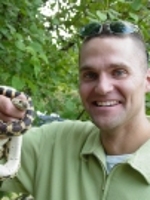
Brian MacGowan
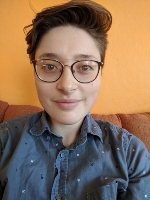
Rob Weiner
Rob earned their MSc. in the lab in 2019. Their thesis focused on the efficacy of climate change communication in two settings: 1) between policymakers and scientists in the context of United Nations climate negotiations, and 2) between the United States media and the lay public in coverage of hurricanes. Currently, they are in Purdue’s Department of Agricultural Sciences Education and Communication and are working towards their PhD, researching the cognitive features of risk communication in the context of climate change. At present, they are also organizing graduate students with the long-term goal of unionization.
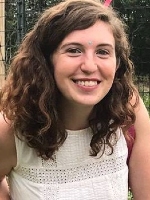
Michelle Hemler
Michelle earned her B.S. in Natural Resources and Environmental Science (2016) and her M.S. in Natural Resources Social Science (2019) from Purdue University. Her masters’ thesis examined the impact of crop insurance on conservation adoption. After graduating with her M.S., Michelle was hired by Dr. Prokopy as a Research Associate and Outreach Coordinator, where she contributed to several projects related to conservation and farmer decision-making, including (1) understanding farmers’ decisions to continue or discontinue cover crop use after cost-share contracts end, (2) identifying unique barriers to edge-of-field practice adoption in the Western Lake Erie Basin, and (3) evaluating farmer-led learning networks, its enabling conditions, and key characteristics of successful networks. In her free time, Michelle enjoys gardening and meditation.

Junyu Lu
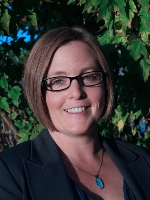
Sarah Church
Sarah is an Assistant Professor of Planning in the Department of Earth Sciences at Montana State University. She has professional and research experience in multiple sectors including non-profit, private, municipal, state government, and university contexts. Sarah completed a Masters of Planning at the University of Utah and PhD in Planning at the University of British Columbia – both focusing on stakeholder engagement and watershed planning. During her time at Purdue, she worked on many projects including understanding successful watershed planning processes, farmers’ motivations and barriers to conservation adoption, as well as climate change communication in the agriculture sector. She plans to continue to research behavior change processes across urban and working landscapes, particularly the how social learning and systems thinking influence environmental knowledge and behaviors. When not teaching, researching or writing, Sarah hikes and cycles with her family, and plays the violin in the community.

Yuling Gao
Yuling grew up in a historic city, Jingzhou, along the Yangtze River in central China. Rapid development in urban cities and rural areas of China changed the landscape tremendously, which impelled her to pursue her study in urban planning in the US. After obtaining a Master’s degree in environmental planning from Rutgers University, Yuling became more focused on sustainable development and interaction between human and environment. After three and half years at Purdue, she completed her Ph.D. in Environmental Social Science, on the factors influencing adoption, maintenance and diffusion of urban stormwater conservation practices. Currently, she is a postdoctoral researcher at the University of California, Berkeley. Outside of the work time, she enjoys wandering new places and photographing good moments of life.
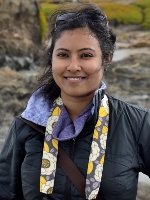
Aritree Samanta
Aritree is an Assistant Professor in Environmental Studies at the School of Public Affairs and Civic Engagement, San Francisco State University. As an interdisciplinary scholar, Aritree works in the areas of governance and collaboration in regional watershed systems, urban governance, and community resilience. Her work as a postdoctoral research associate at the NRSS lab involved studying the role of crop advisors in promoting conservation practices in watersheds in Michigan, and evaluating innovative collaborative watershed partnerships in Indiana. She completed her Ph.D. in Urban and Public Affairs from the Levin College of Urban Affairs at Cleveland State University. Aritree’s professional work in India included projects in the areas of urban sustainability and climate change adaptation in low-income communities. In the United States, she has held fellowship and research positions with the Alliance for the Great Lakes in Chicago, IL and the Northeast Midwest Institute in Washington D.C. Outside of work, she takes an active interest in photographing city life and people, reading, hiking, and enjoying various cultural opportunities that a place has to offer.
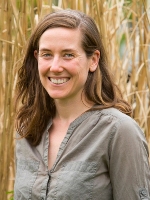
Chloe Wardropper
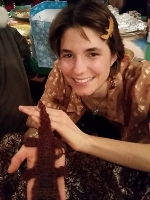
Brianna Osinski
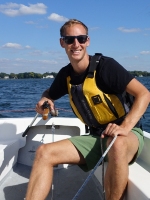
Francis Eanes
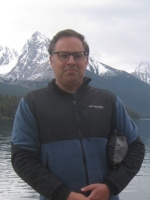
Ajay Singh
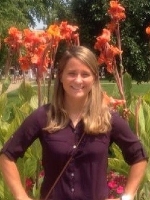
Belyna Bentlage
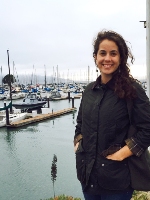
Zoë Glas
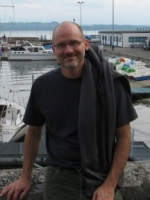
Brian Bulla
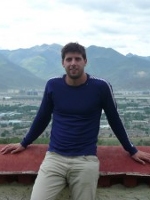
Silvestre García de Jalón
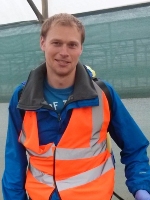
Mike Dunn
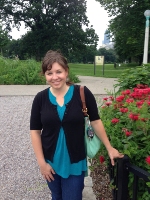
Jessica Ulrich-Schad
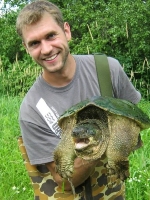
Aaron Pape
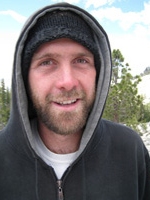
Nick Babin
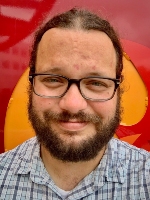
Stuart Carlton
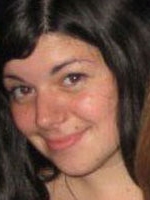
Amber Saylor Mase
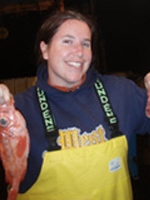
Kate Mulvaney
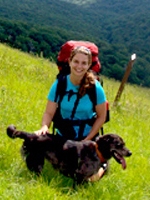
Rebecca Perry-Hill
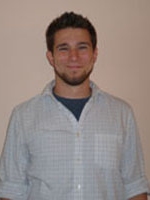
Adam Reimer

JoElla Jackson-Tyree
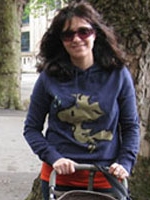
Lamis Behbehani
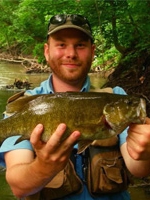
Nate Mullendore
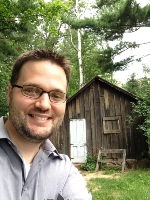
Aaron Thompson
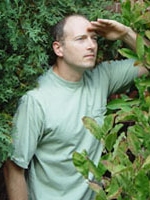
Adam Baumgart-Getz
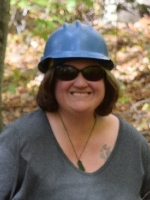
Kristin Floress
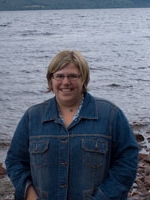
Alicia Molloy
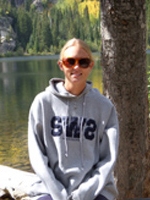
Denise Weinkauf Garcia

Julie Crick
